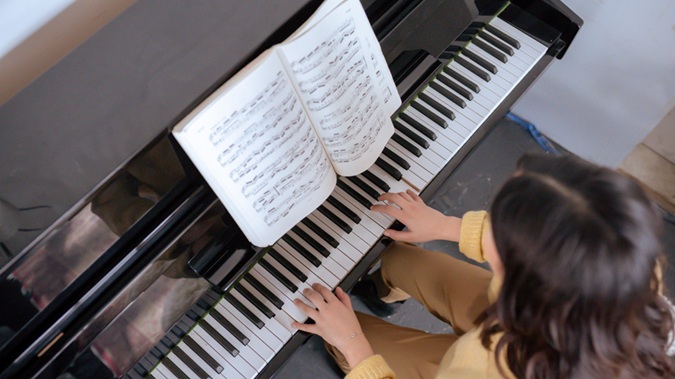
The keyboard is one of the most versatile and expressive instruments in modern music. From pop and jazz to classical and electronic genres, mastering this instrument opens countless creative and professional doors. While self-teaching can help you get started, there are certain skills that are far more effectively developed in a structured, immersive environment—especially one designed to replicate real-world musical demands.
Here’s a look at the essential keyboard skills that are best mastered with expert guidance, hands-on training, and a community of fellow musicians.
1. Technical Proficiency and Finger Independence
One of the first hurdles for any keyboardist is developing technical control. This includes proper posture, hand positioning, and the ability to play complex passages smoothly. A music school environment forces you to go beyond simply “playing the notes” by focusing on:
- Precision in timing and rhythm
- Evenness between hands
- Dexterity-building exercises like scales, arpeggios, and Hanon drills
- Advanced fingering for seamless chord changes
These technical foundations ensure you can tackle any style or tempo with confidence, something that’s hard to perfect without live feedback from skilled instructors.
2. Advanced Chord Voicings and Harmonic Understanding
While many self-taught players can memorize a handful of chords, true mastery comes from understanding harmonic function and being able to build chords in multiple positions. Music school training helps you:
- Learn extended chords (9ths, 11ths, 13ths)
- Apply chord inversions for smoother progressions
- Create interesting voicings for different genres
- Understand how harmony supports melody
This deep harmonic knowledge allows you to adapt instantly, whether you’re playing solo or in a full ensemble.
3. Improvisation Skills Across Genres
Improvisation is both an art and a science. It requires not just creativity, but also a toolbox of melodic, harmonic, and rhythmic ideas you can call on in real time. In a guided learning environment, you’ll practice:
- Soloing over jazz, blues, funk, and pop progressions
- Using modes, scales, and chromaticism effectively
- Responding to other musicians during live jams
- Building phrases that tell a musical story
These improvisational skills are best developed with constant interaction, feedback, and the chance to perform with others in varied settings.
4. Reading and Interpreting Music
Strong sight-reading ability opens up opportunities in live performance, studio work, and musical theater. In structured training, you’ll work on:
- Reading standard notation fluently
- Understanding lead sheets and chord charts
- Following complex arrangements
- Interpreting dynamics, articulation, and phrasing cues
In a music school setting, this skill is reinforced by constant exposure to new material, helping you adapt quickly in any performance scenario.
5. Rhythmic Versatility and Groove
Great keyboardists aren’t just playing the right notes—they’re locking into the right feel. Structured training exposes you to a wide variety of rhythmic concepts:
- Playing in odd time signatures
- Syncopation techniques
- Developing pocket and groove for funk, R&B, and Latin styles
- Working with metronomes and click tracks for precision
This rhythmic fluency is especially valuable in collaborative environments where timing is everything.
6. Ear Training and Transcription
Being able to pick out melodies, chords, and rhythms by ear is a professional-level skill. Through guided ear training, you’ll learn to:
- Recognize intervals and chord qualities
- Transcribe songs and solos
- Identify rhythmic patterns
- Match pitch instantly
While ear training apps exist, the real breakthrough happens when you apply these skills in live ensemble work and one-on-one feedback sessions.
7. Performance Confidence and Stage Presence
Even the most technically skilled players can struggle on stage without proper performance training. In a music school, you’ll get to:
- Rehearse with live bands in a safe environment
- Practice playing under stage lighting and sound conditions
- Learn microphone and stage setup techniques
- Develop the confidence to handle mistakes gracefully
These experiences prepare you for everything from small club gigs to large-scale concerts.
8. Mastery of Music Technology
Today’s keyboardists are often expected to double as tech-savvy producers and arrangers. A formal learning program provides hands-on experience with:
- Digital audio workstations (DAWs) like Logic or Ableton
- MIDI controllers and synthesizers
- Sampling and sound design
- Drum programming and sequencing
If you’re pursuing an online keyboard program, these technology skills are especially valuable for remote collaborations, home recording, and hybrid live/virtual performances.
9. Ensemble Collaboration
Playing with others is one of the most effective ways to grow as a musician. A music school setting provides:
- Regular band rehearsals with rotating lineups
- Opportunities to back up vocalists or other instrumentalists
- Experience adapting to different genres on short notice
- Development of listening and communication skills on stage
Learning how to “play your role” in a group is a skill that pays off in any professional context.
10. Creative Arranging and Composition
Finally, structured programs encourage you to move beyond performance and into creation. Through guided composition classes, you’ll explore:
- Building arrangements for solo piano or full band
- Writing for different genres and audiences
- Using harmonic and melodic motifs for cohesion
- Producing polished demos for your portfolio
This ability to create, not just perform, is often what separates hobbyists from professionals.
While self-study can provide a solid introduction to keyboard playing, mastering the skills above requires structured practice, expert feedback, and consistent exposure to diverse musical settings. Whether your goal is to perform, compose, produce, or all three, a formal learning environment accelerates your growth and equips you for success in the modern music world.

